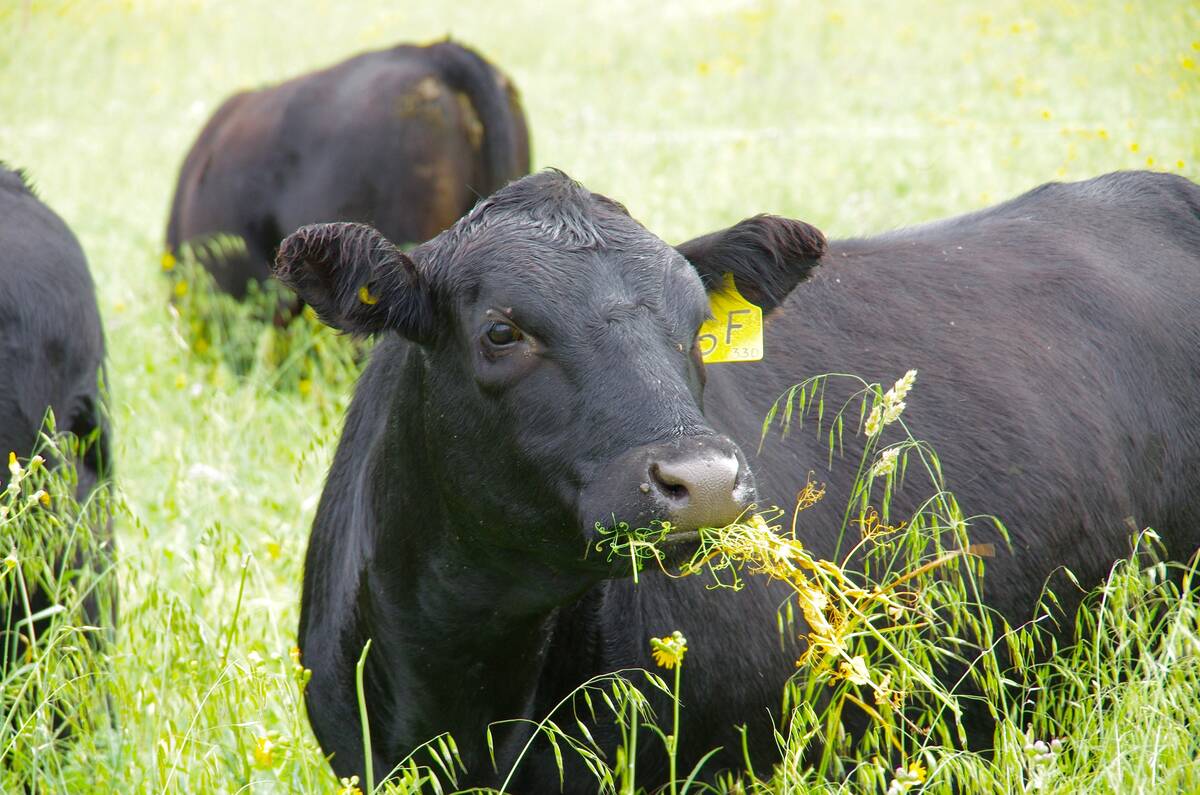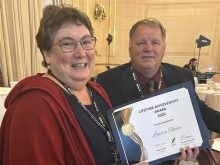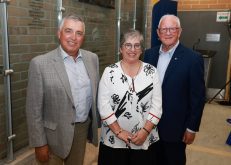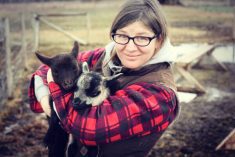The plan was to grow slowly.
When Erin and Jason Boily of Iron Head Bison Ranch bought the farmstead that once belonged to his grandparents, they took a year to tear down old fences, put up new ones, clear brush and generally lay the groundwork for their bison herd.
When their first animals arrived in January 2018, they were ready to start expanding.
Read Also

Canadian cattle industry has wins to shout about
Canada’s cattle management has become more efficient, more humane and more knowledgeable, but industry terms may not resonate with the general public.
The initial aim was to sell calves. Unbeknownst to the couple, however, the market landscape was about to shift under their feet.
Within two years, COVID-19 hit. Bison prices tanked during the pandemic, and the Boily family was forced to rapidly change from being cow-calf producers to a finishing operation, and then building a foothold as direct marketers.
“There was quite the dance over the last three, four years,” Jason Boily said.
Why it matters: The first years at Iron Head Bison Ranch have given the Boily family tough waters to navigate, but the vision is to build something that lasts.
The couple are both Métis. Erin Boily grew up in San Clara on the west side of the province, while her husband spent his childhood on beef and dairy farm near La Broquerie.
When they met, she was studying for her eventual career in social work and he was playing hockey. As they began their family, he settled into a career in the oil and gas industry. With a growing family, however, the pair eyed farming.
They both grew up working outdoors, Erin Boily noted — cutting and hauling wood, cutting grass and working on machinery.
“You have to put in the work regardless of the rain, the cold, the heat,” she said. “We both knew that whatever you were going to do took a lot of hard work and determination, and just kind of pushing through no matter what.”
Starting a ranch seemed like a way to pass those values to their girls.
A sharp left turn
The pair established their operation near Richer in southeastern Manitoba and continued to work off-farm.
Over the next few years, they bought more land and increased their bison numbers. The plan was to be a cow-calf operation for five to 10 years, build a strong herd and pay off some of their overhead, Jason Boily said.

There were challenges. While many bison producers were open to sharing information and other help, the pair found it difficult to be taken seriously when looking for financing or feed supplies, given their lack of connections.
Once the pandemic began, the only way to sustain the farm was to feed the animals, butcher them and market the meat themselves.
There were new hurdles with the change, and not a lot of time to troubleshoot them. The Boilys had to find an abattoir that would take bison, adjust their feeding regime, create a website, research demographics and needs in the area and choose which cuts of meat to market, and at what price to sell them.
If that wasn’t enough, the province plunged into drought in 2021 and the price of hay skyrocketed.
As they were finding their feet as ranchers, the Boilys also had to tackle marketing. There’s a lot of effort spent spreading information and educating consumers in the direct marketing business model. And there are a lot of emails to answer.
Their naturally raised bison is lean and nutrient-dense, but it can take three years to grow, Jason Boily noted. They can’t compete or compare with the production cycle of pork, for example.
Heritage ties
The couple’s livestock species of choice ties to their history and community.
Bison was a key part of the Red River Métis economy, used in staples like pemmican. In one historical account, noted in an article from the Gabriel Dumont Institute of Native Studies and Applied Research, Red River settler Alexander Ross reported watching an expedition of more than 1,600 Métis people in some 1,200 Red River carts. These parties had extensive routes, travelling as far as the Missouri River to below Fort Mandan, in present-day North Dakota.
The Métis connection to bison is also spiritual, according to Erin Boily. Ranching has allowed their family to host elders and community members, who find healing in spending time with the animals.
The couple has also supplied bison meat to the Manitoba Métis Federation, which distributes it to Métis citizens.
“It not only helps our family, it helps the community,” Erin Boily said.
The family farm
Today, Iron Head Bison Ranch sells bison meat and leather products from its website but is focusing on branching into retail and restaurants. It has collaborated with companies like Bones and Marrow Broth Company, Trans Canada Brewing Company, and Bistro on Notre Dame.
The dream has always been to build a family farm, Jason Boily said. The kids love it, and the ranch has been a place of solace for the family, as well as for his father during his mom’s recent illness and death.
The vision is to build a house and live there, to raise grandkids there, and to grow the herd.
“[The kids] are able to see mom and dad’s … hard work and starting something from nothing,” Erin Boily said. “You can’t teach that in school.”
















